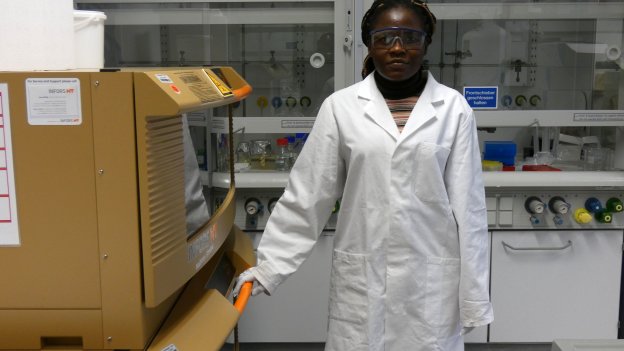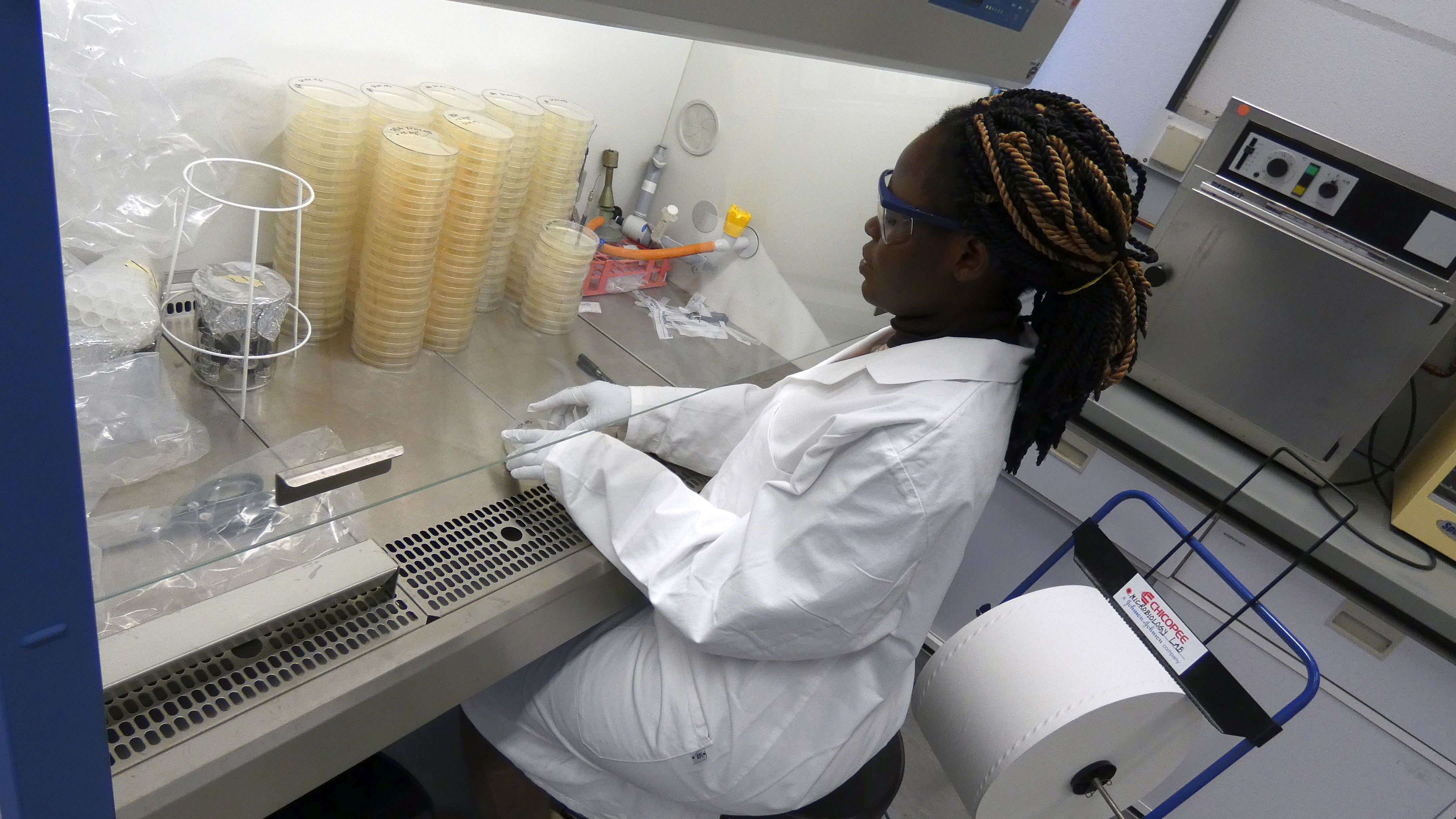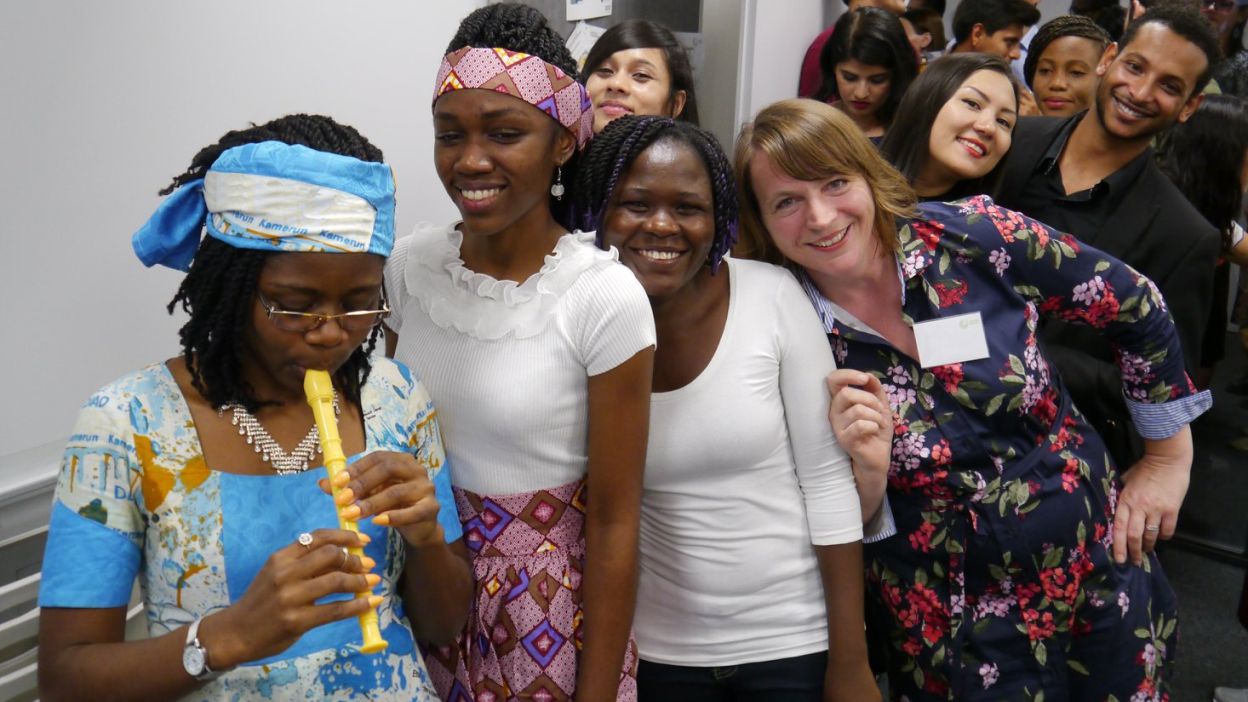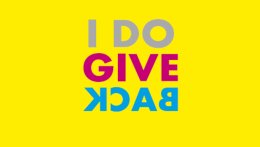Anita Laure Guemkap Tschonang
 Privat
Privat
At work in the laboratory
"Not only did I have the chance to develop scientifically, but I also learned a lot about German culture and language. The experience will stay with me for the rest of my life."
Anita Laure Guemkap Tschonang is a PhD student in chemistry from Cameroon who completed a German course in Göttingen and research at TU Dortmund University as part of the Eirene scholarship.
Here she shares her gathered experiences:
Scientific research in underdeveloped countries, especially in Cameroon where I come from, is very difficult. This is due to the fact that laboratories are less equipped and there is a lack of expertise, which definitely makes for poor conditions of working. Having a great will to receive PhD in Organic Chemistry, I had a chance in the context of African-German-relations by the support DAAD-Stiftung’s Eirene-Scholarship to take up a research fellowship in Germany to train as a researcher as well as to gain new intercultural experiences.
Research
One of the main reasons for me to avail the scholarship was to get hands-on training in basic and advanced techniques in microbiology and analytical chemistry, which are very important not only for my current but also for my future research. Being interested to work on the topic of plant-microbe interaction focused on endophytes, I realized that I first needed to master the fundamentals and basic techniques in chemical microbiology. Working at INFU (TU Dortmund) headed by Prof. Dr. Michael Spiteller, I have the opportunity to get intensive training from PD Dr. Souvik Kusari who heads the chemical microbiology group. In the last months, I have received practical training on how to work in a microbiology lab how to use modern laboratory apparatus. I am now able to prepare solid and liquid media for the cultivation of microorganisms like endophytes, to ferment and to do their extraction. I have also learned how to analyze LC-MS data using the Xcalibur software and how to isolate secondary metabolites by using prep-HPLC. At every step, PD Dr. Kusari has been intensively supervising me and teaching me not only the correct manner to work in the lab but also all the security details for lab safety. I can utilize the knowledge gained from the experience in the labs of INFU in my future research plan.

Privat
Ms. Guemkap evaluates samples
Language course and use of language
Thanks to the Eirene Scholarship, I had the great opportunity to travel to Goettingen last summer in 2018 to take a four-month (June to September) language course at the Goethe Institute. Before travelling to Germany, I was a little bit scared because that was my first time to go far away from my country and I wondered if I could have made it with the language. I had never learned German before and I started in A1. During my first two weeks in A1, I was really frustrated because the teacher spoke to us most of the time in German and I could not understand what she was saying. Her approach to teaching really impressed me because we were taught like in primary school. So, at the end of the A1 level I could introduced myself in German and I found it easy in the next levels. What I faced there as a challenge and up to now is the speaking session because I try to think in English and translate it in German and it does not work in all cases. I really spent a great time with my teachers in each level of my language course.
I was hosted by the Goethe institute in their Hotel. I had the opportunity to exchange with other scholarship holders from different parts of the world. We had several activities together because the Goethe institute regularly organized different culture programs each week. During our culture program, we visited towns such as Hannover, Kassel etc. once in a week we had a practical course on German foods and what I have noticed is that they eat a lot of potatoes and bread in Germany. This is quite different from my home Country. I did not have any difficulty to adapt myself to German foods and I often went to the Mensa at the Gottingen University for lunch. Gottingen is a small city compared to Hanover that I have visited. It took less than two hours to make the round of Gottingen. One thing I will never forget in that town is one of their traditions: On the day they are awarded their doctorate degrees, students are drawn in handcarts from the Great Hall to the Gänseliesel-Fountain (groose girl) in front of the Old Town Hal. There they have to climb the fountain and kiss the statue of the Gänseliesel. I found it very interesting because she is considered to be the most kissed girl in the world.
Dortmund, where I do my PhD research now is quite different from Gottingen. It is a large city and with a little German that I know I am able to buy things at the supermarket and to ask for information where necessary. I got the chance to share an apartment with a German girl at the university’s dormitory and sometimes we speak a little bit of German. I also exchange German words sometimes with my colleagues in the lab and this really help me to improve my skills in German. The weather in Germany is quite different from that of my country and thankfully in Dortmund winter is not too pronounced that means less snow at all and this fits me very well.

Goethe-Institut Goettingen/ Sina Prescha
A celebration of German learners at the Goethe-Institut
Acknowledgement
I take this opportunity to express my gratitude to the DAAD-Stiftung’s ‘’Eirene Scholarship’’ and my private sponsor who I never had a chance to meet her during the DAAD Orientation Seminar in Bonn. I hope to see her one day and express to her my gratitude. I would also like to thank Prof. Dr. Micheal Spiteller who has permitted to work in INFU and PD Dr. Souvik Kusari for personally training me and supervising my work in the laboratory. I hope one day I would be able to give back to the community as well.
As of Fall 2019. The English version is the original.


